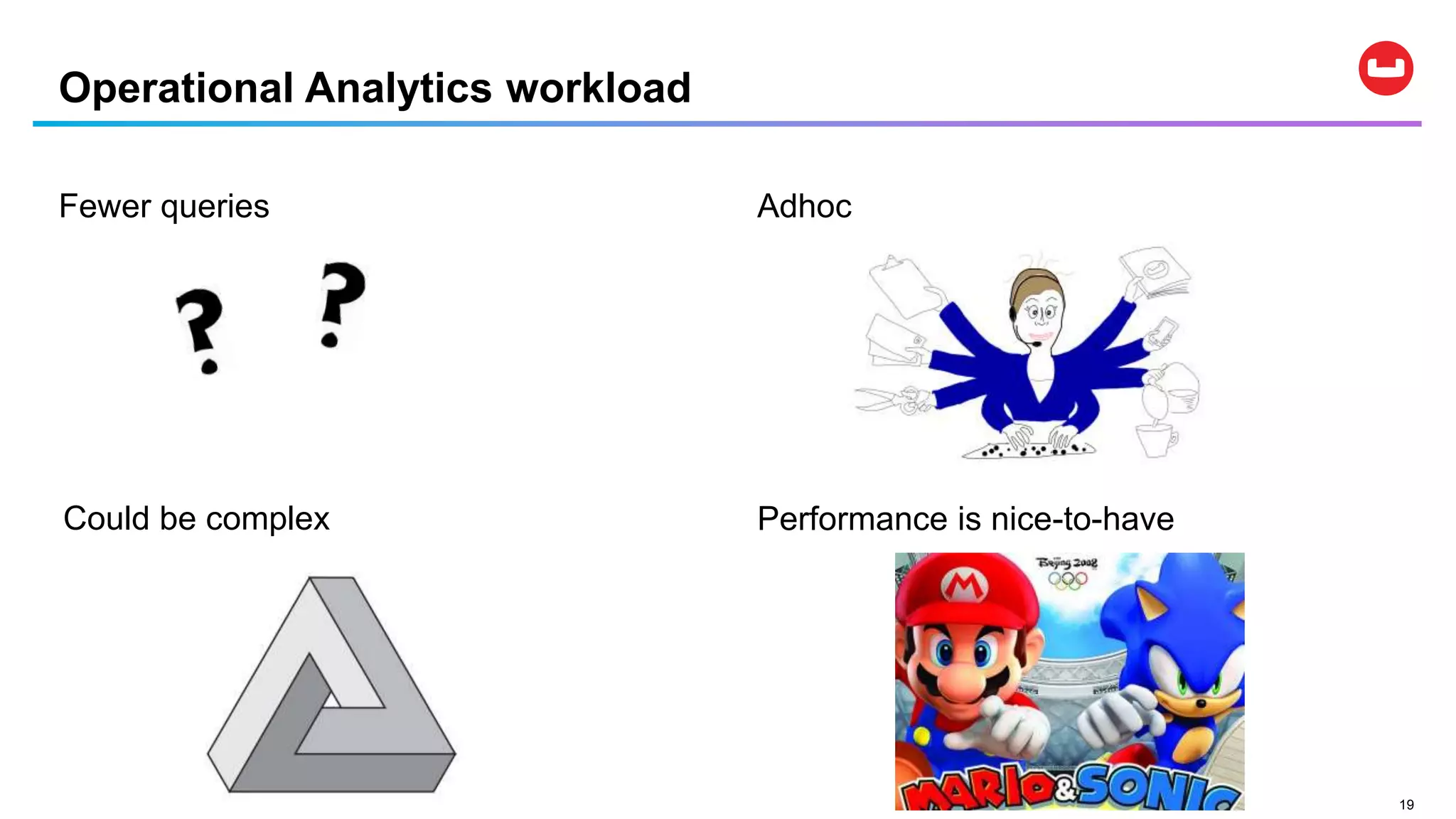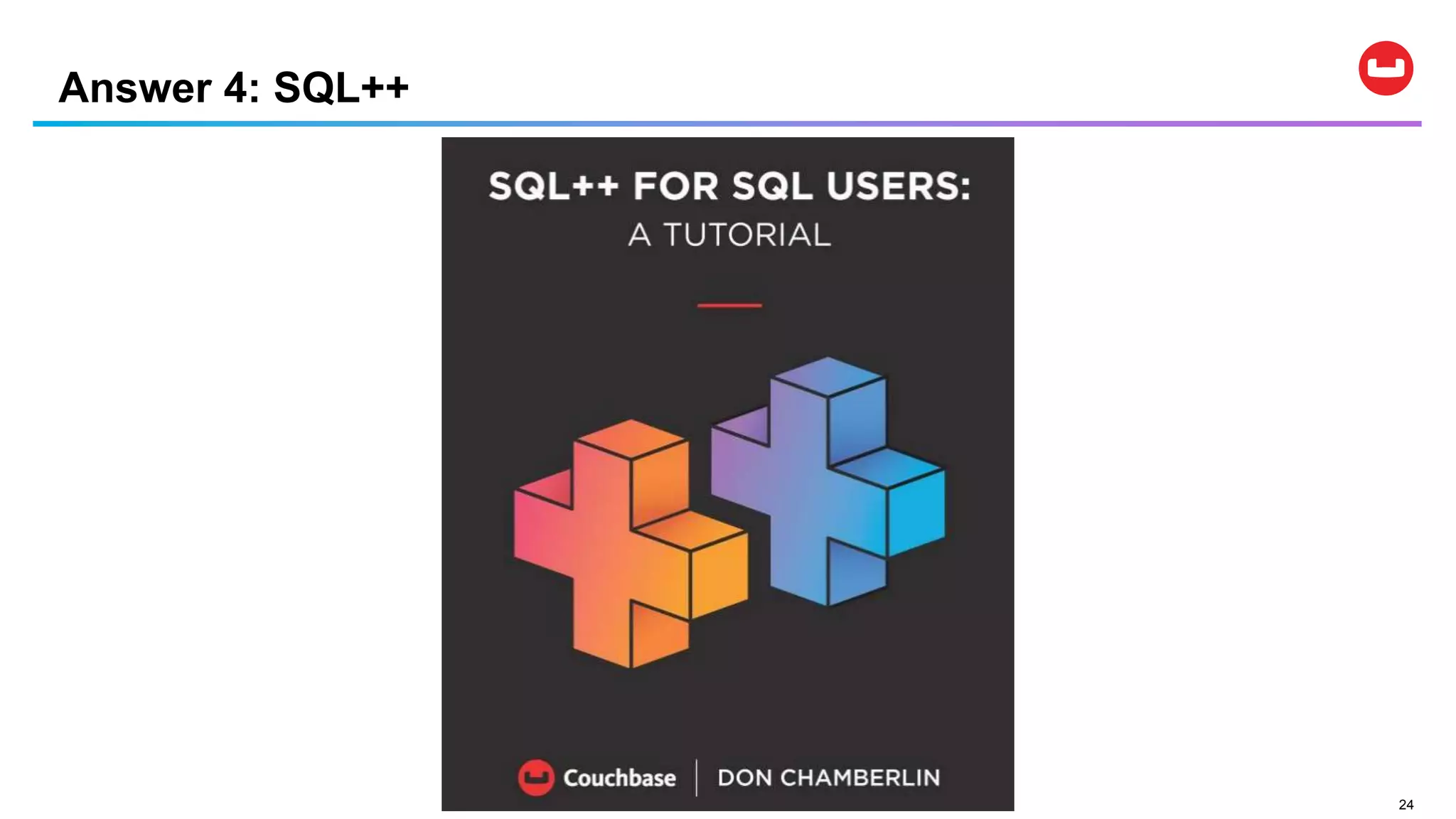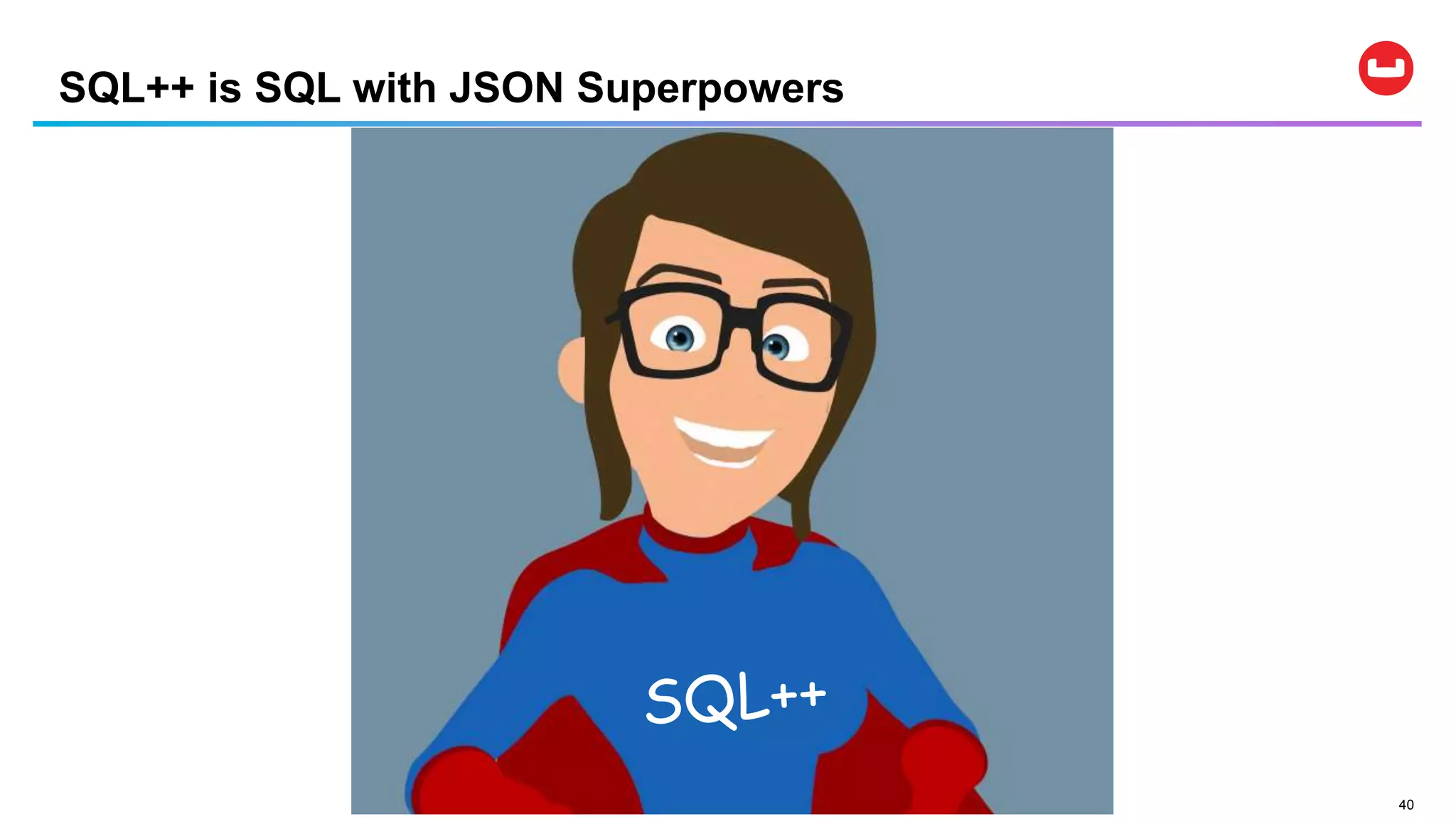SQL++ is an extension of SQL that allows users to query JSON documents like they would relational data, gaining the flexibility of NoSQL with the familiarity of SQL. It provides "superpowers" like querying nested objects and arrays within documents, joining data across collections, and aggregating results. Implementations include Couchbase, AsterixDB and Apache Drill, minimizing ETL while maximizing existing SQL skills for analytics on big data.













![14
Example 2
document key: route_55758
{
"airline": "UA",
"airlineid": "airline_5209",
"destinationairport": "ORD",
"distance": 1050.394306634423,
"equipment": "ER4 ERJ",
"schedule": [
{ "day": 0, "flight": "UA479", "utc": "15:05:00" },
{ "day": 1, "flight": "UA842", "utc": "02:27:00" },
{ "day": 1, "flight": "UA252", "utc": "03:00:00" },
// ... etc ...
],
"sourceairport": "CMH",
"stops": 0,
"type": "route"
}](https://image.slidesharecdn.com/introsqlplusplus-detroittechwatch-june2019-190629130347/75/Intro-to-SQL-Detroit-Tech-Watch-June-2019-14-2048.jpg)
















![31
Superpower: arrays
key 1
{
"name" : "matt",
"favoriteFoods" : [
"pizza",
"cheesecake",
"donuts"
]
}
key 2
{
"name" : "emma",
"favoriteFoods" : [
"donuts",
"Lucky Charms",
"chicken"
]
}
SELECT favoriteFoods[1]
FROM myusers
myusers](https://image.slidesharecdn.com/introsqlplusplus-detroittechwatch-june2019-190629130347/75/Intro-to-SQL-Detroit-Tech-Watch-June-2019-31-2048.jpg)
![32
Superpower: UNNEST
key 1
{
"name" : "matt",
"favoriteFoods" : [
"pizza",
"cheesecake",
"donuts"
]
}
SELECT food, u.name
FROM myusers u
UNNEST u.favoriteFoods food;
myusers
[
{
"food": "pizza",
"name": "matt"
},
{
"food": "cheesecake",
"name": "matt"
},
{
"food": "donuts",
"name": "matt"
}
]](https://image.slidesharecdn.com/introsqlplusplus-detroittechwatch-june2019-190629130347/75/Intro-to-SQL-Detroit-Tech-Watch-June-2019-32-2048.jpg)
![33
Superpower: Quantification
key 1
{
"name" : "matt",
"favoriteFoods" : [
"pizza",
"cheesecake",
"donuts"
]
}
key 2
{
"name" : "emma",
"favoriteFoods" : [
"donuts",
"Lucky Charms",
"chicken"
]
}
SELECT u.name
FROM eftest u
WHERE ANY f
IN u.favoriteFoods
SATISFIES f == 'pizza'
END;
myusers](https://image.slidesharecdn.com/introsqlplusplus-detroittechwatch-june2019-190629130347/75/Intro-to-SQL-Detroit-Tech-Watch-June-2019-33-2048.jpg)











